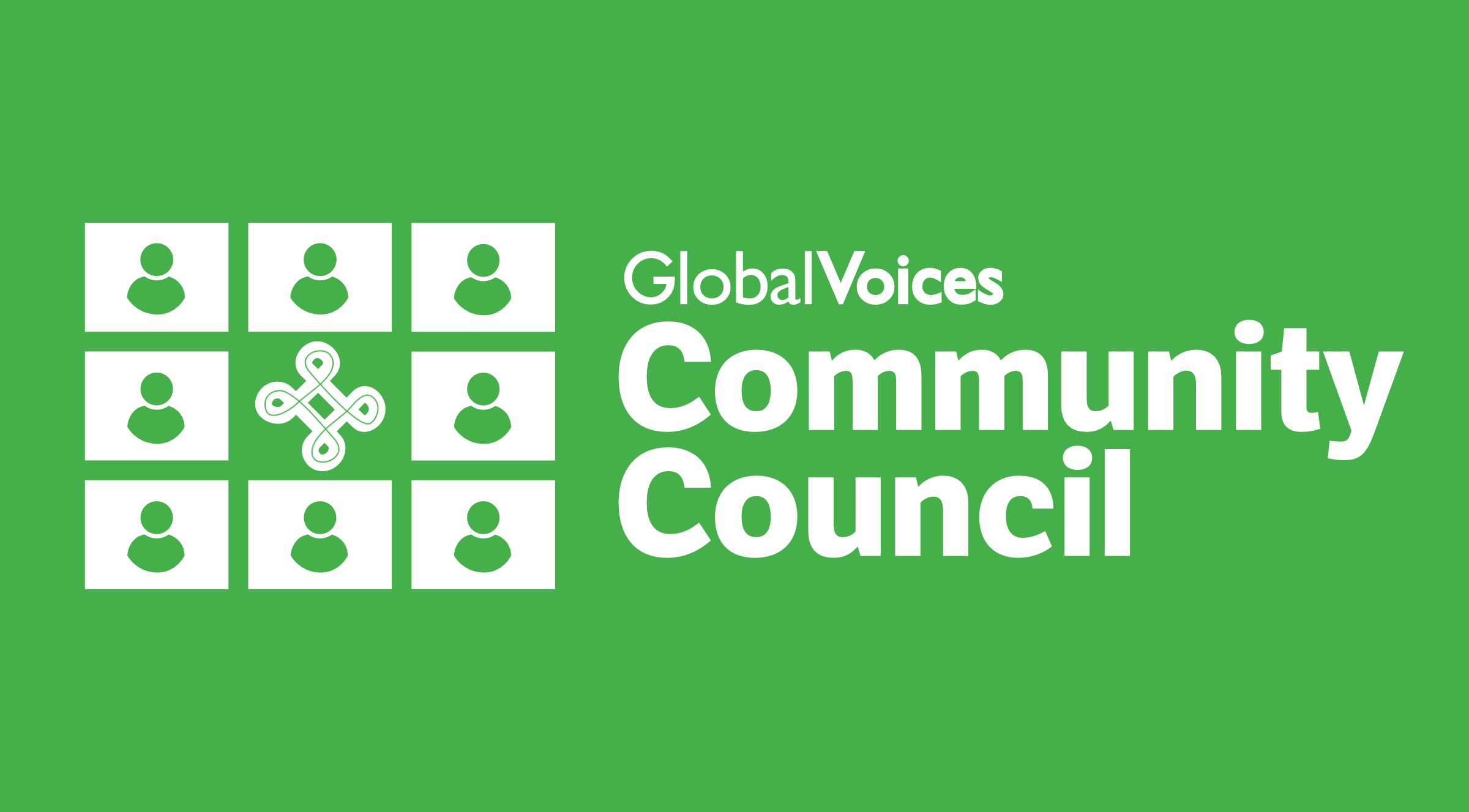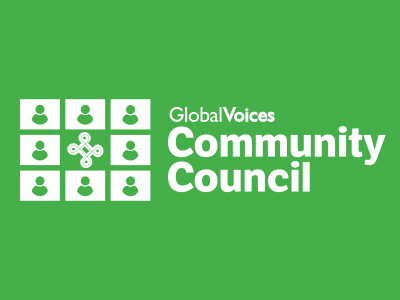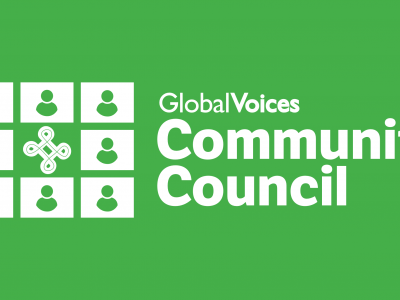Background
In 2023, Global Voices is facing challenges that we need to address as GV continues its mission to increase understanding, as well as create space for those who don’t feel seen or heard to assert their own power. Specifically, we need to ensure that the GV community remains motivated and feels supported and empowered.
Global Voices started as a community of bloggers, rooted in the culture of open knowledge and concepts like Creative Commons. The community consisted of a mix of volunteer and paid contributors. The people who make up our community today are more diverse in terms of background, life experience, and language. This brings a broad and rich set of experiences to our work.
In 2007, Global Voices became an independent legal entity in the form of a Dutch nonprofit foundation. Our by-laws, written at that time and updated in 2014, describe globalvoices.org as a “community website,” and mandate that a set number of seats on the Global Voices be reserved for board for “volunteer(s) participating regularly.”
Over the years we have adapted our activities in response to shifts in the information landscape, as well as to the changing social, economic, and political forces that influence who can contribute to Global Voices. In 2014, to ensure high-quality, error-free stories, we introduced additional editorial support and limited the number of people who could publish directly to the site.
In 2018, at the first Global Voices Community Council, we had an extensive debate over our organizational model, fundraising approach, and editorial focus. This resulted in significant changes to our work processes and funding rules. Since then, we have continued to test and tweak our editorial practices and contributor guidelines.
In 2019, we built the Civic Media Observatory in response to the dramatic increase in misinformation and disinformation online. The Observatory, which analyzes the narratives that emerge around events and issues, has expanded our editorial work into a research method, and brought a group of researchers into the community.
As we approach our 20th anniversary in 2024, we are once again reviewing the foundations of our community model, testing it for strengths and weaknesses and assessing its viability in the context of various Global Voices sections and projects.
Our current challenges
The challenges we are facing are due to both external forces and internal pressures.
The external forces include:
- the fragmentation of social media in some countries and contexts, as people move away from dominant platforms and seek like-minded communities
- the decline in visibility of Creative Commons and online open knowledge cultures
- the challenge of discovering credible perspectives in contentious media spaces filled with disinformation
- the challenge of finding audiences when social media and search are broken
- challenges related to AI, which threaten to replace both internet search and some kinds of information and knowledge production
- the closing of political spaces, which makes participation difficult or impossible for people from some countries or communities. One symptom of this is former contributors asking for their stories to be removed from the GV site due to pressure, censorship, or threats
- The impunity of states and technology corporations, which resist external pressure to act ethically, resulting in a feeling of powerlessness among rights activists and journalists
The internal pressures include:
- the need to ensure accurate information and well-written stories, resulting in more rigorous and time-consuming editorial processes
- the challenge of recruiting new volunteer contributors with the requisite skills and knowledge
- a lack of resources to support regional editors full time, given increasing work demands
- few options for people to contribute if they are unable to write or translate
- the challenge of managing a mix of paid and volunteer contributors
- ensuring fair and equitable treatment to people with different economic and political circumstances
- not having been able to meet face-to-face for years because of COVID-19, which has affected the cohesiveness of the community
- perceived lack of impact for our stories resulting from huge competition for attention across all media
Preparing for the future
As we move into our 20th year, and plan for a summit in 2024, it is an ideal time to ask ourselves what motivates us as an organization and a community. What is Global Voices’ role in the world? What are we offering that is different from other media? How do we configure ourselves as an organization and a community to best fulfill that role and carry out the work involved?
Global Voices’ board held a rare in-person meeting in June 2023; thinking about the state of our field and of our role in it was the primary topic. Of the many reflections from the meeting, here a few that capture what inspires and excites the board:
“The important thing is that people have been able to find different narratives on GV, different perspectives than what you’d find in the New York Times. . . It’s what for me remains the reason why this is an interesting project. If we lost that, and became a standard newsroom, with all the issues of pay and so forth. . . it would lose some of what makes it so special. ” Akwe Amosu
“Geopolitical conflict is increasingly about identities and narratives, and who shapes them, and who has the power to shape them. We are in the midst of this shift, in ways that are quite scary, and in ways that make people who are trying to contribute their voices and perspectives more vulnerable to threat, more physically threatened, than ever.” Rebecca MacKinnon
“This is about asserting power in a way that makes those in power know there are others out there.” Lokman Tsui
“Double down on a space in which people talk frankly and openly about their challenges. . . . We don’t call it an organizing space, but we should. We could make a step that is more welcoming and explicit for the people who do the organizing. If I were making a pitch now to step us up to be sustainable, this is the argument I would make. We are more important than many of the things you fund, and we need more resources, as a space for creative opening for creative play.” Akwe Amosu
“We [should use] the GV Council as a model [for conversations beyond the Council]. . . .This is not “content moderation” but facilitating, cultivating, stewarding, gardening. . . . We often talk about what’s distinctive, not just about commonality. We should focus on topic-based networks/communities, consistent with GV community values.” Ethan Zuckerman
Benefits and incentives
As we noted in the introduction, the central question we are asking for this year’s Council is how to ensure that members of the GV community remain motivated and are supported and empowered.
In past surveys of the GV community, many people cited a desire to change perceptions about their countries and communities as a key motivation for contributing to Global Voices. Participation in GV offers other incentives, and people have derived other benefits from participating, but many of us feel it’s important to clarify what those are, and to outline new options.
For many, Global Voices offers opportunities to develop skills and knowledge and has been a springboard to professional opportunities. Through their participation in GV, contributors have developed their skills as writers and translators, and many have gone on to work as journalists or professional translators. Others have developed expertise in digital rights and technology, become leaders in activist networks, gone on to pursue academic degrees, and to work for other nonprofits in our field. Other benefits include opportunities to present at conferences, support with grants or fellowship applications, and GV’s fiscal sponsorship of initiatives launched by contributors.
Global Voices also offers financial compensation for some kinds of work, as an incentive. We have greatly expanded paid opportunities for writers and translators in the past four years and introduced paid Fellows programs as part of some projects. We have run over a dozen research and editorial projects that include payments to hundreds of contributors, from Civic Media Observatory projects to special coverage on digital rights with UPROAR and CIPESA, to participatory research in Rising Voices projects. These projects have resulted in many hundreds of published stories and over 30 research papers.
It is also worth noting that increasing opportunities for paid contributions has altered the dynamics of the newsroom. We have found that contributors who come in through paid opportunities rarely continue to contribute as volunteers or participate in the community over longer periods of time.
Participating in GV also gives people direct access to others in our global networks, through conferences, informal and formal discussions, and editorial efforts such as interviews and co-productions. Once part of our global networks, GV community members extend their relationships and collaborations in original and unexpected directions. Such connections have led to real change in the world, and to the creation of numerous new initiatives and organizations.
Possible initiatives
The questions we are asking in this Council session include:
How do we make the benefits and incentives we offer clearer to our contributors?
Are there other benefits we should offer?
How do we expand the number of people who can take advantage of them?
How can we take a more structured approach providing incentives to our community?
Below we propose four initiatives to address these questions:
1. Restructuring newsroom benefits and incentives
Rationale: Regional editors report that the contributor benefits and incentives that we offer make it hard to build and retain regional teams. Restructuring, redefining, and adding to our incentives, and clarifying the benefits of participation, will help them to build and retain teams of contributors.
Features: continue process of reorganization, including:
-
-
- Review and amendment of editors’ work obligations
- Clarification/structuring of contributor benefits and creating new incentives
-
Activities:
-
-
- Reduce writing quotas for editors to make space for other activities, such as:
- Writing newsletters
- Facilitating clubs
- Co-creating stories with communities
- Create a formal category for paid contributing editors who only write stories and newsletters, or produce media such as podcasts or webinars
- Provide regional editors with commissioning budgets to recruit paid contributors
- Build initiatives such as co-productions, paid research and writing opportunities, and fellowship programs
- Define and implement a process in which contributors apply for different kinds of opportunities, such as training, or being considered for paid writing or research projects
- Reduce writing quotas for editors to make space for other activities, such as:
-
Results:
-
-
- Incentives for participation align with resources
- GV is responsive to a wider range of community interests
- People can participate at different levels
- Editors can adapt their work to suit local conditions
-
2. Media training
Rationale: Offers a way for people to gain knowledge about how to study, discuss, and write about contemporary online media
Features:
-
-
- Offered periodically
- Focuses on underrepresented groups/communities
- For both existing and new GV contributors, as well as partner communities
- Offered in multilingual formats
- Includes virtual and in-person activities
- Advertised through networks and social media
- Could be deployed for special projects as grant/contractual work
-
Activities:
-
-
- Training in media literacy to understand information ecosystems, using the Civic Media Observatory method, including:
- Narrative analysis
- Find trustworthy information in diverse information ecosystems
- Analyzing media for validity and accuracy
- Internet-based research, such as social media analysis and open source investigation
- Training of trainers to facilitate workshops in multiple languages and locations
- Collaborative creation of stories, newsletters, and other outputs
- Reporting and news writing training
- Training in media literacy to understand information ecosystems, using the Civic Media Observatory method, including:
-
Results:
-
-
- An established entry point for participation in the Global Voices community exists
- Participants gain a better understanding of media representation, narratives, analysis of context and subtext, etc,. in preparation for contributing to Global Voices
- After successful completion of training, participants may receive a certificate, join a regional or topical club, participate in Civic Media Observatory projects, or contribute to or write stories
- Builds additional ways for contributors to know each other, as members of training cohorts and classes
-
3. Community clubs and conversations
Rationale: Approaches community building as an activity that serves GV’s mission, with the explicit goals of creating space for conversation and organizing for action. A way to involve people who want to participate beyond the core activities of writing and translating.
Features:
-
-
- Offered as an opportunity to all GV contributors
- Community members may propose ideas for clubs or conversation topics through a selection process
- Contributors share and discuss local concerns and knowledge in semi-structured meetings
- Discussions are considered an end in themselves, but are documented and summarized
- Discussions also lead to actions, such as writing, doing research, sharing information, collaborating, building networks, reading together, etc.
-
Activities:
-
-
- Periodic online discussions, in-person meetups (if possible)
- Periodic publication of newsletters and stories that originate from the discussions
- Public conversations, social media initiatives, etc.
-
Results:
-
-
- Facilitates the collective creation of information and knowledge as an end in itself
- Builds community across different Global Voices functions and sections
-
4. Building/modeling the social media of the future
Rationale: Imagine a social media platform with GV values. We create topic-based public networks/communities that operate in accordance with GV community values.
Features: We use our model to build transnational, multilingual networks organized by topic. Global Voices becomes a kind of Reddit, based in non-surveillant search advertising, reaching a billion viewers a month. We expand and scale the GV Council model. This is not “content moderation” but facilitating, cultivating, stewarding, gardening; a social network with lots of face-to-face interaction and in-person meetups.
Activities:
-
-
- Launch or find funds to purchase a social media platform, launch a federated instance of Mastodon or similar, or adopt GV usage of an existing platform that allows us to shape norms
- Root ideas around discussion groups and clubs focusing on topics and affinities beyond the Global Voices community
- Establish content and participation rules based on Global Voices mission and values
-
Results:
-
-
- Another alternative to corporatized social media platforms is available to the public
- GV conversations and value set expands to include people currently outside the GV community
-
Download the issue paper as a PDF.



